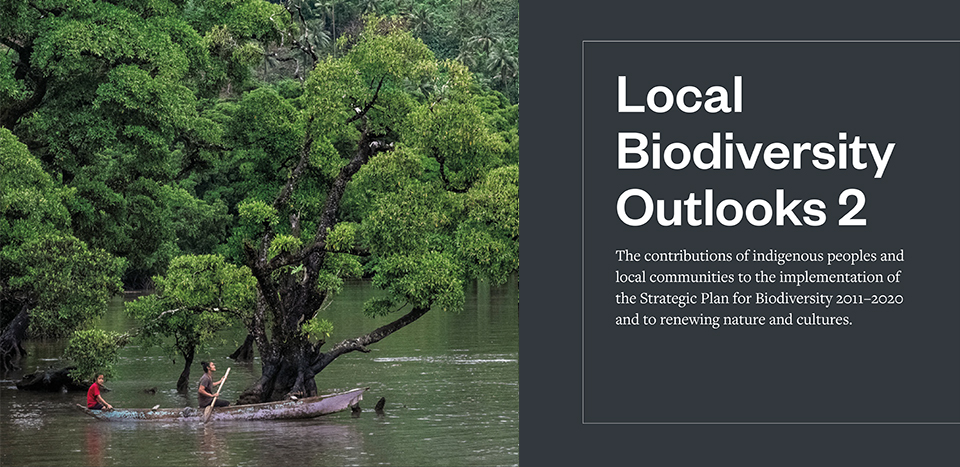First published on 09/23/2020, and last updated on 10/02/2020
Future global biodiversity goals must embed the vital role of Indigenous peoples and local communities in protecting biological and cultural diversity, the authors of the second edition of Local Biodiversity Outlooks emphasised.
Adapted from Forest Peoples Programme’s (a Member of ICCA Consortium) press release.
The second edition of Local Biodiversity Outlooks has recently been published. The report outlines how the world can transition towards a more reciprocal and balanced relationship between humans and nature.
Over fifty indigenous and local authors and communities, including several from the ICCA Consortium’s membership, have contributed to this collaborative research and analysis. These include Brenda Asuncion and Kevin Chang (Kuaʻāina Ulu ʻAuamo, Member), Mihanta Bakoliarimisa (TAFO MIHAAVO, Member), Héctor Jaime Vinasco (Resguardo Inígena Cañamomo Lomaprieta, Member), Eric Kimalit (Endorois Welfare Council, Member), Shapiom Noningo (Wampis Nation, Member), community partners of PACOS Trust (Member) and Josefa Cariño Tauli (Honorary member).
By authoring this report ahead of the UN Biodiversity Summit, Indigenous peoples and local communities have put forward their perspectives on what should be done to stop the unprecedented loss in global biodiversity. The report also presents success stories and challenges of Indigenous and local community-led biodiversity conservation from around the world.
The full report in English and summary in Arabic, English, French, Mandarin, Russian and Spanish are available here. Translations of the full report will be available soon.
Forest Peoples Programme has published this second edition of LBO in collaboration with Centres of Distinction on Indigenous and Local Knowledge, Indigenous Women’s Biodiversity Network, International Indigenous Forum on Biodiversity, and the Secretariat of the Convention on Biological Diversity. LBO is a sister publication of Global Biodiversity Outlook— the flagship publication of the Convention on Biological Diversity.
In key messages, the report said, ‘Aichi Biodiversity Target 18 of the Strategic Plan for Biodiversity 2011–2020, which relates to traditional knowledge and customary sustainable use, has not been met.’
‘Putting the cultures and rights of IPLCs at the heart of the 2050 biodiversity strategy would deliver sustainable livelihoods and wellbeing, and positive outcomes for biodiversity and climate.’
This edition of Local Biodiversity Outlooks has been released during crucial negotiations towards a post-2020 global biodiversity framework, and the findings presented here are of fundamental importance to the outcome of those negotiations.
Featured image: Adapted from the cover page of the summary report in English
